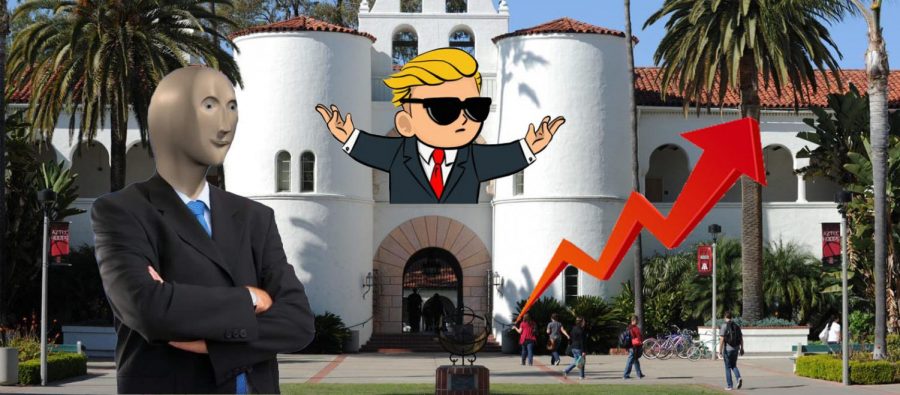Since the start of the year, the price of each GameStop share cruised at around $18 as the company neared its demise but on Jan. 27, Wall Street analysts and hedge fund managers, capitalizing on the company’s decline, raised their eyebrows when the company’s stock rose to an all-time high of about $485. This wild market fluctuation was the result of joint efforts of millions of young investors part of the “r/wallstreetbets” online community on Reddit, a forum characterized by offering ludicrous investing advice and memes.
After the news reported investment management firm Melvin Capital placed large short positions, borrowing shares from a broker-dealer and returning them ideally at a lower price, capitalizing from the price difference, on GameStop shares, members of r/wallstreetbets called for the entire community to purchase shares of GameStop through the brokerage, Robinhood.
Following this viral online forum’s initiative, not only did the company’s shares skyrocket, the dramatic movement led Robinhood to impose restrictions on the purchases and sales of companies targeted by r/wallstreetbets including GameStop, AMC Theatres, and Blackberry Limited.
It is noteworthy that a 2019 survey on r/wallstreetbets shows that most of its community members are of age 18 to 22, followed by 23 to 29. These results widely contradict the stereotype of investors being of an elderly demographic. As Robinhood and other broker-dealers restricted the access to the shares of the aforementioned companies, the narrative quickly became focused on how wall street professionals were defeated at their own game by youngsters who also reported a net loss of invested money following the forum’s advice, according to the survey.
After the trade restrictions were introduced, thousands of social media users took to platforms like Twitter and Reddit to denounce the market’s unfair treatment towards the average Joe, who makes a pretty penny from investing while major firms are allowed to do the very same.
All in all, the irony in the name Robinhood has been highlighted, to say the least.
Those who are more than market-enthusiasts or news consumers will have perhaps perceived the bigger picture in this recent news — undoubtedly, there is still power to the people.
This purportedly “David & Goliath” narrative where the little guy wins is refreshing. The issue of the access younger generations have to financial empowerment resources should be of greater concern to those who in the future might find themselves working in industries not even created yet.
Even though large financial corporations have been antagonized throughout this event, there are a plethora of lessons young generations can learn from those in high financial spheres. Although there won’t always be online forums “sending stocks to the moon” the generations before us have very well understood and leveraged the benefits of investing, seeking a financial advisor, or even taking more risks in personal ventures.
Sebastian Mendoza is a freshman studying finance. Follow him on Twitter @sbstnmndza.







